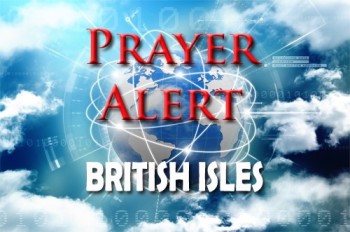Greece claims 'invasion' in Crete as it tries to halt asylum
Greece has suspended the right to seek asylum for at least three months amid a sharp rise in migrants arriving via the Libya–Crete route. The controversial policy, described by Migration Minister Thanos Plevris as necessary to avoid a national emergency, has been criticised by human rights advocates for violating EU and international law. Over 7,000 migrants reached Crete between January and June 2025, with overcrowded detention centres now housing refugees in harsh conditions. Many, like Mustafa from war-torn Sudan, are detained without legal recourse or access to proper shelter and care. Critics argue that even in times of crisis, the right to claim asylum must be protected. The government maintains the move is temporary and driven by national security and tourism concerns, while EU officials say they are reviewing the legality of Greece’s actions. As desperation grows among detainees, the situation raises urgent ethical and legal questions about how Europe handles asylum in the face of rising migration, public fear, and political pressure.
Waves reach US west coast after Russian earthquake as Japan lifts tsunami warnings
One of the most powerful earthquakes in recorded history struck off Russia’s Kamchatka Peninsula on Wednesday, registering a magnitude of 8.8. Occurring in the Pacific Ring of Fire, the quake triggered tsunami warnings across Japan, Hawaii, the U.S. West Coast, and other Pacific nations, prompting evacuations of over two million people. Fortunately, no deaths were reported. Kamchatka, known for seismic activity, experienced intense tremors, causing panic and damaging buildings. Tsunami waves exceeding 5 meters struck Severo-Kurilsk, flooding ports and sweeping away boats. A volcano on Kamchatka also began erupting after the quake. In Peru, over half of Pacific ports were closed as a precaution. Videos from the region showed calm heroism in hospitals during surgeries and chaos as residents fled in fear. Though the most severe threats have passed, aftershocks are expected. Authorities have urged vigilance, and emergency services remain on high alert. This event underscores the vulnerability of nations situated on seismic fault lines and the need for preparedness and compassion in times of natural disaster.
Gaza: Famine unfolding, says global hunger monitor
A famine is unfolding across Gaza, according to the UN-led Integrated Food Security Phase Classification (IPC), which says conditions have “worsened dramatically” in recent months. Gaza’s food consumption is now at its lowest since the Israel-Hamas conflict began, with over a third of the population going entire days without food. Malnutrition and starvation-related deaths are rising rapidly - at least 147 people have died, including 88 children. The IPC reports that famine thresholds have been breached in most of Gaza and for acute malnutrition in Gaza City. Although Israel has eased restrictions on aid entry, humanitarian groups say the volume remains critically insufficient. Aid convoys are often overwhelmed by desperate civilians, and the World Food Programme warns that unless unimpeded and large-scale aid is delivered immediately, mass starvation will intensify. Experts are calling for food, medicine, and essential supplies to be allowed in without obstruction. Despite denials from the Israeli government, evidence from UN agencies, clinics, and aid workers paints a dire picture. Without swift, unhindered intervention, Gaza faces an unprecedented humanitarian catastrophe.
Beijing: 30 dead and 80,000 evacuated after flooding
At least 30 people have died and over 80,000 have been evacuated following devastating rainstorms and floods in Beijing and surrounding regions. Chinese authorities confirmed the deaths, with 21 caused by drowning - many in underground spaces that filled rapidly - and others from electrocution and building collapses. The Miyun District northeast of Beijing recorded nearly 543mm of rain. The storms have severely impacted infrastructure, cutting power to 136 villages and damaging 31 roads, complicating rescue and relief efforts. President Xi Jinping and Premier Li Qiang have urged “all-out efforts” to rescue the missing, resettle the displaced, and minimise further casualties. An orange alert - the second-highest emergency level - remains in effect as more rain is forecast. The deluge has affected several provinces including Hebei, Jilin, and Shandong. China’s National Development and Reform Commission has allocated £21 million in emergency funding to support relief operations. With fears of additional flooding and landslides, authorities are on high alert, monitoring rivers, reservoirs, and urban drainage systems to prevent further tragedy. Relief efforts continue as the region battles ongoing extreme weather.











